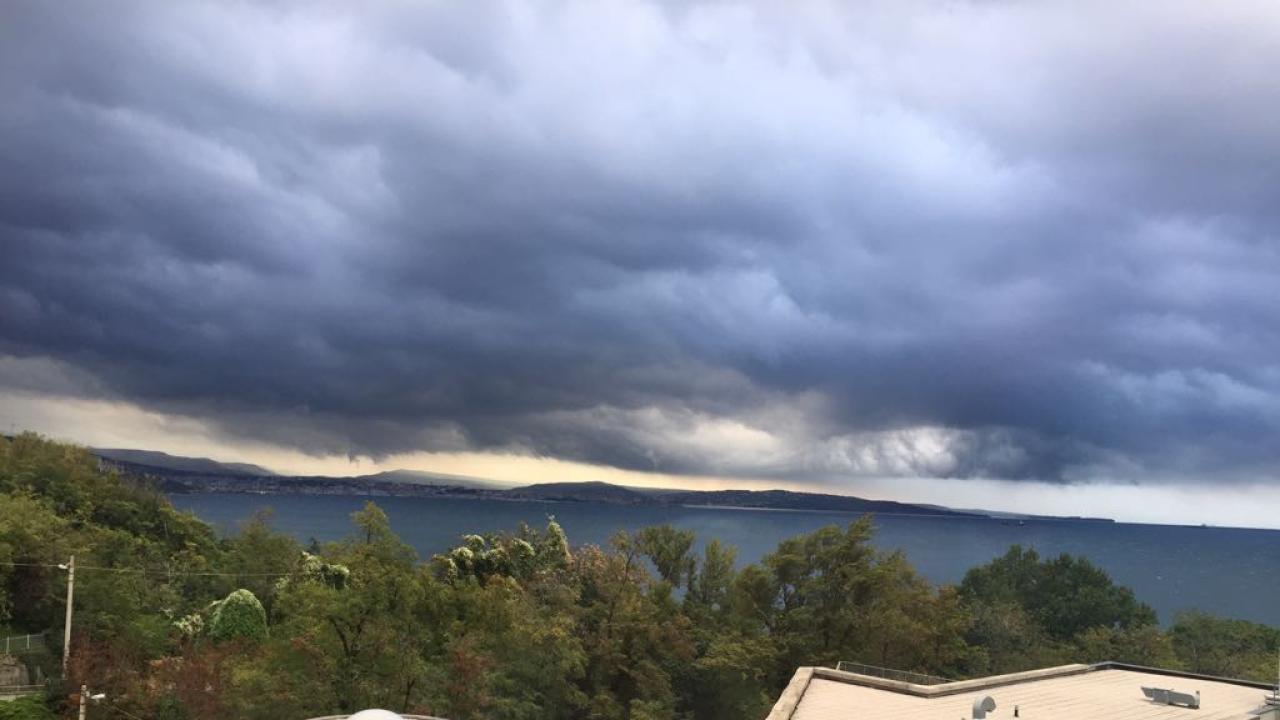
“Environmental Meteorology: From the Fundamentals of Climate to Operational Applications” is a series of lectures, created as a new joint initiative between the Earth System Physics group at ICTP and the Atmospherics Physics group at the University of Trento. Starting on February 25, and continuing until June, the online series aims to present the current state of weather and climate research, with topics ranging from basic theory and climate modelling to the effects of climate and weather on health, agriculture, energy and the economy.
“There is no question that climate change is one of the most profound challenges that humanity is facing,” says Professor Simona Bordoni of the University of Trento and co-organizer of the event. “The scientific community can play a fundamental role in addressing and mitigating this challenge, by advancing our fundamental understanding of the climate system and its interactions with human and environmental systems, by making recommendations to policy- and decision-makers, identifying different courses of actions and evaluating benefits and risks associated with them.
The series will include seminars by experts from across the world working at the forefront of climate and atmospheric sciences. The array of topics to be covered will appeal to a broad and diverse audience. “The event will be of wide interest, not just to the growing community of climate and meteorology scientists within Italy, but across the globe, including the community of ICTP STEP students and associates,” says Adrian Tompkins, research scientist at ICTP and co-organizer of the series.
The seminars are open to all those with an interest in climate and weather, and also contribute to the training offered to ICTP pre-PhD Diploma programme students and to the Master of Science programme in Environmental Meteorology offered by the University of Trento and the University of Innsbruck, Austria.
“The seminars are meant to expand the knowledge that students gain from classes and their own research, and offer an opportunity for them to interact with experts outside of their own programme, to build social and intellectual relationships, to get inspired by new ideas and directions, and be exposed to different career options,” says Bordoni.
Adds Tompkins, “the seminar topics cover a much wider range of expertise than is available at ICTP or at University of Trento. This could help students to sample possible future research topics for their career. The applications of climate to health, for example, is a very important issue in developing countries, and is included in the series. Exciting new fields such as applications of artificial intelligence in climate are also covered.”
The first lecture of the series, taking place on 25 February at 3pm, will feature Angela Benedetti, Senior Scientist at the Research Department, European Centre for Medium-Range Weather Forecasts (ECMWF), UK, who will talk about "The role of aerosols in the predictability at the sub-seasonal to seasonal scale".
“I believe it is very important to connect the research and operational communities with the academic world,” says Benedetti. “This type of research is of high impact for society, and it should be regarded as a high priority by educational institutions. Collaborations between research entities and operational centres with universities is of paramount importance to foster the future growth of this sector and maximize the resulting benefits for society.”
That collaboration is even more key in times of political change. The ECMWF, the institute where Benedetti works in the UK, is facing the effects of Brexit, which is already impacting research and academia. “From my perspective, Brexit has had a strong impact on ECMWF,” says Benedetti. “While the UK is still a member state of ECMWF, the fact that the UK is no longer a member of the European Union prompted ECMWF to ask its Member States to bid to host a third facility, which was awarded to Bonn, Germany - the second ECMWF's facility being already in Bologna, Italy. This was done in order to facilitate service provision within the various funding programmes of the European Union. Everybody is affected by it: some people directly as they will be asked to relocate from Reading to Bonn, others indirectly as they will be collaborating with colleagues across Europe.”
The organizers believe that this series will also be a strong example of gender equity for younger students. “I hope the fact that all 7 of the speakers invited by ICTP are top female scientists will especially encourage our female students to persevere, despite the barriers that unfortunately still exist to gender equity in science,” says Tompkins.
Benedetti, who is a strong advocate for women in science and writes about the topic in her blog, agrees with this view. “Women have struggled for many years to affirm themselves in the STEM disciplines and they still have a long way ahead of them.” She thinks that while a lot has been achieved in bringing more awareness to the problems that women face in fields that have been traditionally male-dominated, stereotypes and unconscious biases are still very much present. In her opinion, addressing these problems at an early stage of the educational path would ensure that more women enter higher education in the STEM disciplines and go on to have careers in science. “It is a number game,” says Benedetti. “The more women (and diversity in general) the better, as it normalises the fact that science is for women as much as it is for men. The lack of female role models in higher positions in academic and non-academic institution is also part of the problem.”
Those interested in following the series are required to register in advance here.













